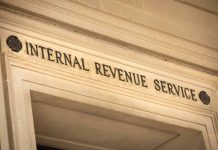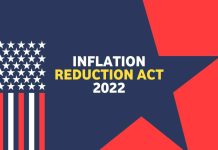
Managing money is something that not everyone has experience with. Sadly, there are plenty of Americans that make mistakes with their financial management and don’t even know it! It is important to know some tips that can help you deal with your finances.
Tips for Managing Your Finances
While a financial professional will provide specialized advice based on your current situation, these tips are great to use as a general guideline. Some tips that may be able to help you with your finances include:
- Manage Expenses
- Reduce Your Existing Bills
- Get a Side Gig
- Consider a Government Program
Manage Bills
To better manage your expenses, you will want to get together a budget. This budget should look at what you spend versus what you make. This means including necessary expenses like bills as well as unnecessary expenses. Unnecessary expenses can include going out to eat at fast food places, going to a salon, etc. Once you list out all of this information, you will be able to stay on track to make sure you are spending what you are supposed to. You can pinpoint where you may need to save money by being able to view this information in an easy-to-understand format!
Reduce Your Existing Bills
Let’s look at an example to get some more context on how you could reduce your existing bills. For example, let’s say you got car insurance at the first company you came across for $400 a month. Through comparison shopping, you may find that there are other insurance companies that offer the same level of coverage at prices as low as $200 a month. You can make the switch to a new company while keeping the same level of protection, and spend less in the end! You may be able to do this with a variety of bills so after you make your budget, you will want to see where you could reduce how much you spend.
Get a Side Gig
There are 168 hours in one week. If you are only working 40 hours, you may find that you have a lot of free time. You can improve your income and make more money by getting a side gig. Luckily, side jobs are often flexible and can work around your existing schedule (depending on the position). You may benefit from working a side job! Some popular side jobs include the following:
- Grocery delivery
- Dog Walking
- Restaurant Delivery
- Babysitting
Consider a Government Program
While the options above are great for managing your finances, you may find that you need some extra support. Luckily, there are a variety of programs available thanks to the government. Some options that may be able to provide you with some additional support include the following:
- Supplemental Nutrition Assistance Program (SNAP)
- Special Supplemental Food Program for Women, Infants, and Children (WIC)
- Medicaid
- Child’s Health Insurance Program (CHIP)
- Housing Choice Voucher Program (Section 8 Housing)
- Low Income Housing Energy Assistance Program (LIHEAP)
- Supplemental Security Income (SSI)
Supplemental Nutrition Assistance Program (SNAP)
Through the United States Department of Agriculture (USDA), SNAP is able to help people in need handle the cost of groceries. It’s important to know that even though this is a federal opportunity, the specific program will vary depending on the state. The assistance that SNAP provides is available through Electronic Benefit Transfer (EBT) cards. These EBT cards act as prepaid debit cards that receive funds every month while the recipient is eligible. The funds deposited onto these cards can go towards the costs of qualifying food items. EBT cards are not used everywhere so it is important to find locations that accept these cards. Fun fact, you may have heard this program be referred to as “food stamps!” If you are interested in this assistance program you can review the eligibility guidelines online. You can expect to need to at least meet income requirements.
Special Supplemental Food Program for Women, Infants, and Children (WIC)
This specialized federal food assistance program is designed for women, infants, and children up to the age of 5. This program gives food, vouchers, referrals of assistance, and education to eligible individuals. WIC also covers pregnant women! If you are interested in applying to this program, you can get in touch with your local WIC office.
Medicaid
This is a federal health insurance program for eligible low-income individuals and families. The Centers for Medicaid and Medicare Services (CMS) administers this service. These centers are a part of the U.S. Department of Health and Human Services (which makes sense because this program deals with both health and human services.) Eligible minors, adults, pregnant women, individuals with disabilities, and elderly individuals receive health benefits for free (or low-cost).
Child’s Health Insurance Program (CHIP)
Do you make too much to qualify for Medicaid? No issue! CHIP is another program that you may be able to qualify for! This program provides affordable medical and dental care to children that do not have insurance until they are 19 years old. This program covers hospital care, medical tests, screenings, medical supplies, preventative care, and more!
Housing Choice Voucher Program (Section 8 Housing)
The Housing Choice Voucher Program, also referred to as Section 8 Housing, is a federal assistance affordable housing program. Section 8 provides vouchers to eligible low-income individuals and families for housing costs. Unfortunately, not every property accepts these vouchers as a form of payment, which limits voucher recipients in their ability to choose a place to live. Luckily, the government offers tax incentives to properties as a way to encourage the acceptance of these vouchers.
It is also important to note that while this program is very helpful, it can take a long time to receive the benefits. You can submit an application and get more information at your local public housing authority (PHA). If your application is approved, then you will likely go on a waitlist. These waitlists vary by location and level of need but can take anywhere from a few months to a few years.
Low Income Home Energy Assistance Program (LIHEAP)
This program has the goal of supporting families by assisting with energy costs. LIHEAP can provide aid benefits towards home energy utility bills, weatherization services, and minor home repairs that are energy-related. When you receive this assistance, you reduce the chance of unexpected accidents that can occur from a lack of proper heating or cooling. If you want more information, you can call the National Energy Assistance Referral (NEAR) at 1-866-674-6327.
Supplemental Security Income (SSI)
Eligible low-income senior citizens and individuals with disabilities may be able to receive cash with this program. SSI can help recipients purchase necessities like housing, food, and clothing. Individuals that qualify for this opportunity can get up to $943 a month for 2024!
Bottom Line
There are plenty of ways that you can better handle your finances. This includes:
- Manage Expenses
- Reduce Your Existing Bills
- Get a Side Gig
- Consider a Government Program
However, for personalized advice specific to your situation, you will want to get in touch with a financial professional. They will advise you on how to deal with your situation. Luckily, there are some general tips you can keep in mind as well!




























